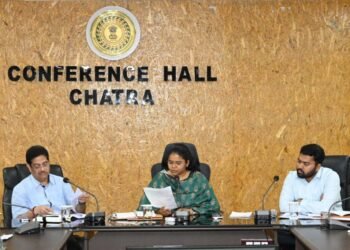NEW DELHI (India CSR): With structural drivers of demand in the Indian economy remaining strong over the medium term, paperboards demand is expected to remain robust. Enabling factors include India’s emerging demographic trends, urbanisation, rising middle class, continued substitution of plastic with greener alternatives and India emerging as the Global manufacturing hub. End-user segments such as Pharmaceuticals, Apparel, QSR, FMCG, consumer durables and e-Commerce are projected to register strong growth. Writing & Printing paper demand is also expected to remain firm on the back of demand from the publishing and notebooks industries driven by the Government’s thrust on primary and secondary education.
Margin Pressure Challenges
The cumulative impact of subdued realisations, excess supply in domestic markets led by unprecedented increase in low-priced imports into India from China, Indonesia etc., sharp surge in wood costs, and currency-led volatility exerted pressure on margins during the year. The Business was able to partially mitigate the impact of these challenges by leveraging structural advantages of the integrated business model, stepped-up end-user engagements, Digital interventions and increase in salience of exports and Plastic substitution (PlaSub) products.
Sustainable Wood Sourcing
The Business continues to procure wood, a key raw material, from sustainable sources. Research on clonal development has resulted in introduction of high-yielding and disease-resistant clones that are adaptable to a wide variety of agro-climatic conditions. This has not only aided in increasing farmer incomes but has also enabled greater consistency in farmer earnings. In this context, ITC’s Life Sciences & Technology Centre is engaged in developing higher yielding second generation clones with enhanced pest and disease resistant attributes.
Core Area Expansion
The Business continues to focus on scaling up wood sourcing from core areas and has increased plantations in core area during the year. In addition, initiatives such as bund plantations and scaling up plantations in new catchment areas in Odisha and Chhattisgarh have enabled procurement of nearly 10% of total wood requirement of the Business from such new areas, with further potential for increasing cost-effective access to fibre in the future.
Certification and Achievements
Business has achieved highest ever plantation area of ~65000 ha (growth of appx. 30%) during the year. ITC has the distinction of being the first in India to have obtained the Forest Stewardship Council-Forest Management (FSC®-FM) certification (FSC®-C102390), which confirms compliance with the highest international benchmarks of plantation management across the dimensions of environmental responsibility, social benefit, and economic viability. Till date, ITC has received FSC®-FM certification for over 1.49 lakh acres of plantations involving over 25000 farmers. During the year, nearly 4.85 lakh tonnes of FSC®-certified wood was procured from these certified plantations. ITC sustained its position as the leading supplier of FSC®-certified paper and paperboards (FSC®-C064218) in India.
Import Threat Response
While cheap imports from China as well as from ASEAN countries remain a potential threat in the short run, the Business remains confident of leveraging its competitive strengths to mitigate the impact thereof. Representations continue to be made at appropriate forums for suitable measures to safeguard domestic industry. Directorate General of Trade Remedies (DGTR), Ministry of Commerce and Industry, India has also initiated an Anti-Dumping investigation on Virgin Paperboard originating from China and Chile. Indian Paper Manufacturers Association (IPMA), National Industry body has also approached Ministry of Commerce for considering imposition of Minimum Import Price (MIP) on import of paperboards into India.
Policy Engagement Initiatives
ITC continues to engage with policy makers to address key industry challenges including increasing wood availability through collaborative public-private plantation models to strengthen the competitiveness of domestic industry and arrest the rapid increase of low-priced imports of paper & paperboard into the country.
Structural Efficiency Gains
Over the years, ITC has continued to lay thrust on structural interventions to provide sustainable competitive advantage across the value chain with significant structural cost savings and enhanced productivity across all key operating nodes to enhance the margin profile of its portfolio.
Integrated Business Advantage
The integrated nature of ITC’s business model – comprising access to high-quality, cost competitive and renewable fibre supply chain, continued development of high yielding and disease-resistant clonal saplings, enhancing energy efficiency, continuous improvement through product & process innovation, in-house pulp manufacturing capability, imported pulp substitution, world-class product quality, state-of-the-art manufacturing facilities, increasing usage of data analytics and Industry 4.0 technologies along with robust forward linkages with the Education and Stationery Products Business and the Packaging and Printing Business – is a key source of competitive advantage for ITC’s Paperboards & Specialty Papers Business.
ITC is confident of further consolidating its leadership position in the Indian Paper and Paperboards industry leveraging recent investments in innovation platforms anchored on the development of sustainable products and cutting-edge digital technologies to set new benchmarks in customer satisfaction, operational excellence, and sustainability.
(India CSR)























